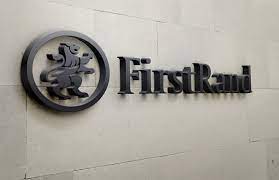Africa’s biggest bank eyes acquisitions to power growth on the Continent
National elections this year are expected to be the most competitive since South Africa became a democracy almost 30 years ago. Surveys suggest the ruling African National Congress could lose its absolute majority for the first time since coming to power in 1994.
- Advertisement -
FirstRand Ltd. is looking to purchase other African banks in countries where it operates as the continent’s biggest lender by market value seeks to expand.
Potential targets for acquisitions may also include financial services outside of traditional banking, Mary Vilakazi, FirstRand’s incoming chief executive officer, said in an interview Thursday at the bank’s headquarters in Johannesburg. She is due to take over from Alan Pullinger on April 1.
- Advertisement -
“Maybe there are other ways in which we can participate in financial services, without necessarily setting up branches and having a banking license,” Vilakazi said. The challenge is in finding possible targets at a reasonable price, she added.
- Advertisement -
Both Standard Bank Group Ltd. and Nedbank Group Ltd., which compete with FirstRand in their home market of South Africa, are moving to capitalize on the rapid economic growth that’s transforming many other countries on the continent. While FirstRand already has units in west and southern Africa, it is also looking at establishing itself in the east, including in Kenya.
Shares of FirstRand rose 18% last year, lagging behind Standard Bank’s 24% rally.
- Advertisement -
Though South Africa’s $405 billion economy has recently been facing headwinds such as record power outages and logistical constraints, Vilakazi said the country’s prospects are brighter in the next 10 years than in the past decade.
National elections this year are expected to be the most competitive since South Africa became a democracy almost 30 years ago. Surveys suggest the ruling African National Congress could lose its absolute majority for the first time since coming to power in 1994.
“For a democracy we need to get to a place whereby a party knows that if they don’t deliver, they can lose an election,” Vilakazi said. The election “might be muddy, it might be noisy, but I think that’s how we start strengthening our democratic muscle.”
Source:norvanreports
- Advertisement -


